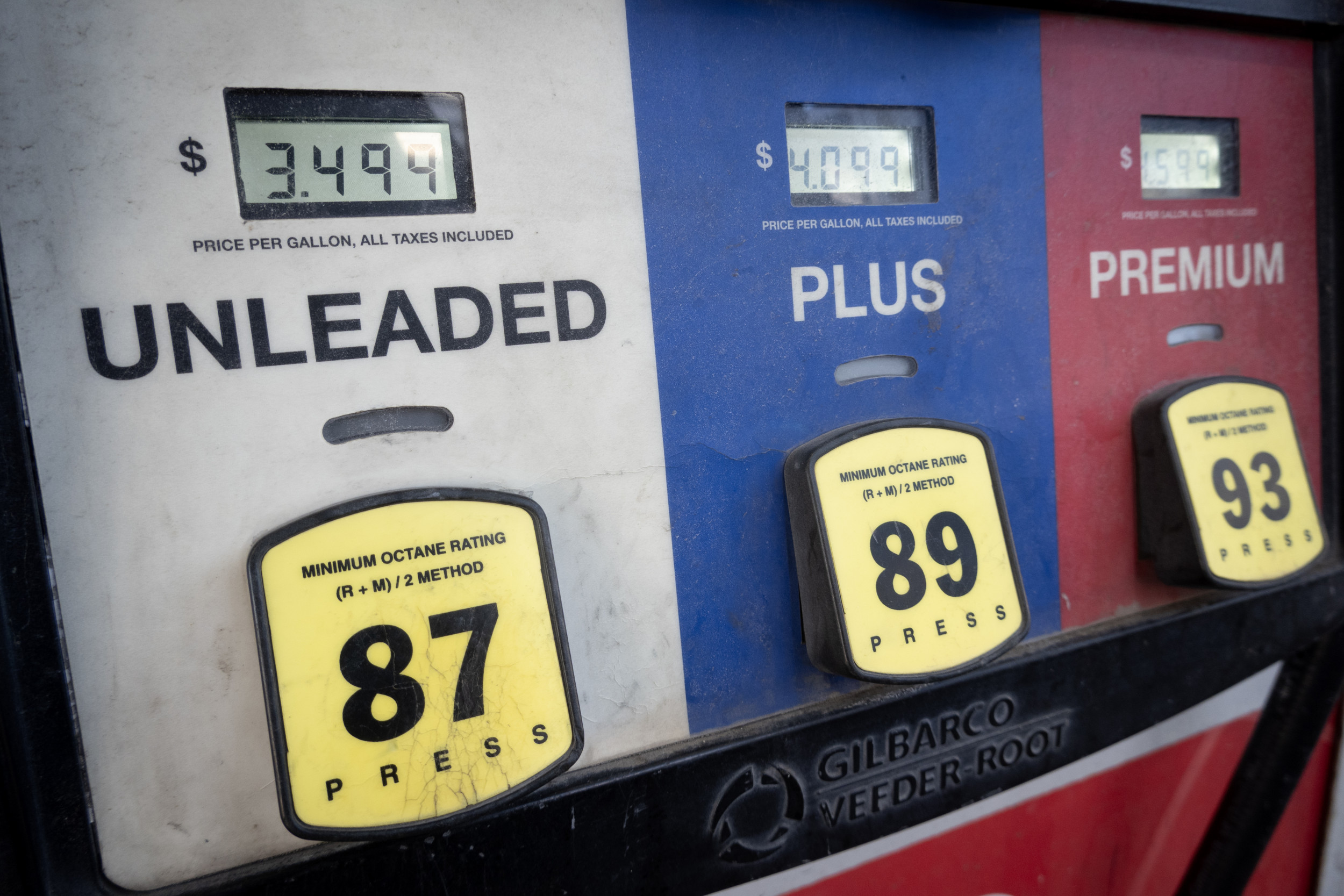
Indiana residents are being advised to minimize visits to gas stations today as smoke from Canadian wildfires continues to worsen air quality across the state.
The Indiana Department of Environmental Management (IDEM) has extended an Air Quality Action Day through Saturday; fine particulate levels are reaching unhealthy thresholds, particularly in northern, northeastern, and northwestern regions, as reported by WNDU, potentially affecting at least a million people.
Newsweek contacted IDEM for comment via email on Saturday.
Why It Matters
EPA reports that Volatile Organic Compounds (VOCs) are chemicals that easily evaporate into the air and are released from sources like petrol stations, vehicle exhaust, paints, and industrial processes.
At gas stations, VOCs escape during refueling and contribute to air pollution even with vapor recovery systems in place. When VOCs react with nitrogen oxides (NOx) in sunlight, they form ground-level ozone—a major component of smog, the United States Environmental Protection Agency reports. EPA advises that this ozone can aggravate asthma, trigger respiratory symptoms, and harm people with existing heart or lung conditions.
Scott Olson/Getty Images
What To Know
The smoke originates from over 200 wildfires burning across Canada, as reported by the Canadian Interagency Forest Fire Center, with plumes stretching thousands of miles and affecting air quality throughout the U.S. Midwest. In some areas, air-quality indexes have reached levels deemed “very unhealthy,” prompting widespread advisories.
Reducing vehicle emissions can help mitigate ozone formation during such alerts. Residents are encouraged to limit driving, avoid refueling vehicles during daylight hours, and postpone the use of gasoline-powered equipment.
To reduce pollution and protect public health, it is recommended to avoid gas stations during air-quality alerts or refueling in the evening, when ozone formation is less likely.
As reported by Newsweek, at least two people have died and tens of thousands have been evacuated in Canada as a result of the blazes.
WDNU reported that the following cities in Indiana will be most affected by the air quality:
North Central Indiana: Including the cities of Elkhart, Goshen, Knox, Logansport, Plymouth, Peru, South Bend, Warsaw, Winamac, and all other cities within the area.
Northeast Indiana: Including the cities of: Angola, Auburn, Decatur, Fort Wayne, Hartford, Huntington City, LaGrange, Marion, Portland, Wabash and all other cities within the area.
Northwest Indiana: Including the cities of: Crown Point, Gary, Hammond, Kentland, LaPorte, Michigan City, Portage, Rensselaer, Valparaiso, and all other cities within the area.
IDEM has issued some recommended actions that the public can take. These include:
- Walk, bike, carpool or use public transportation.
- Avoid using the drive-through and combine errands into one trip.
- Avoid refueling your vehicle or using gasoline-powered lawn equipment until after 7 p.m.
- Turn off your engine when idling for more than 30 seconds.
- Conserve energy by turning off lights or setting the air conditioner to 75 degrees Fahrenheit or above.
A National Weather Service (NWS) air quality alert said that fine particulate levels are expected to be in the Unhealthy for Sensitive Groups range. Active children and adults, and people with respiratory disease, such as asthma, should limit prolonged outdoor exposure.
What People Are Saying
The American Lung Association warns that wildfire smoke poses significant health risks, especially for children, older adults, and individuals with respiratory conditions. They recommend staying indoors, using air purifiers, and keeping windows closed to reduce exposure.
The American Lung Association stated on its website: “Areas throughout the Midwest, including parts of Indiana, will see their air quality impacted by smoke from wildfires burning in Canada this weekend. The smoke is prompting several communities to issue air-quality alerts.
“It is unhealthy to breathe and can be especially harmful to sensitive groups, including children, older adults, and people with lung diseases like asthma and chronic obstructive pulmonary disease.”
What Happens Next
Residents are advised to monitor local air-quality reports and take necessary precautions to protect their health during this period of elevated pollution.
